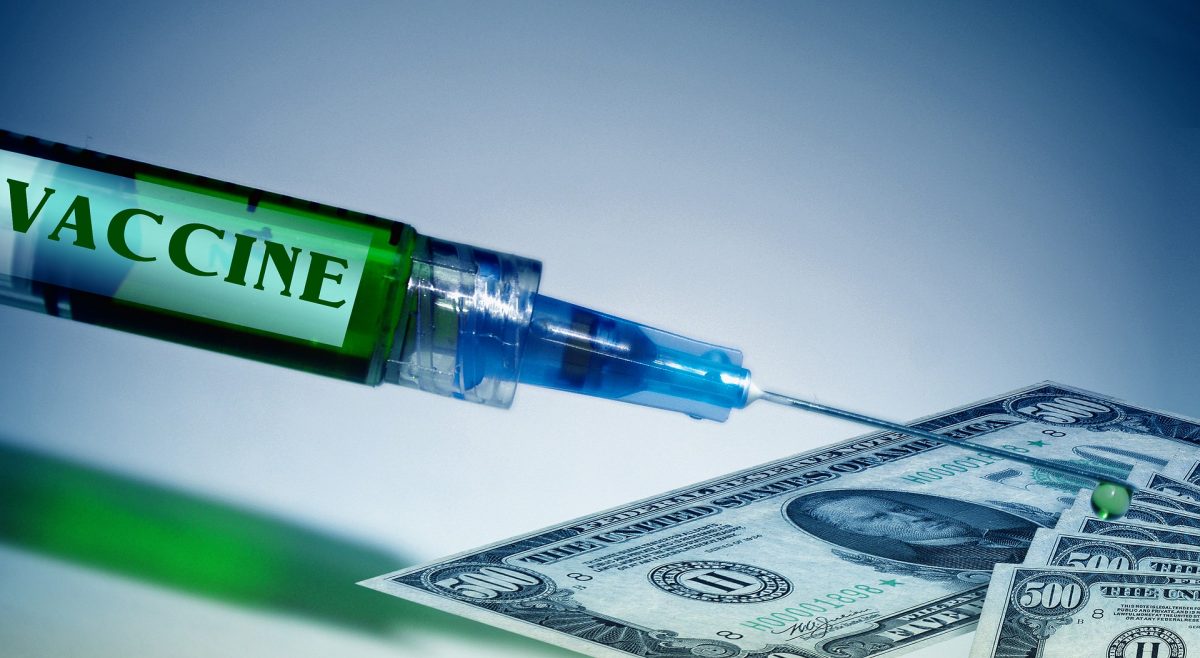Harold Wilson, the former UK prime minister, is famous for stating that, “A week is a long time in politics.” Given the pace of recent events, Boris Johnson, the current UK prime minister, could be forgiven for updating that to say that, “A day is a long time in the coronavirus crisis’. Earlier this month, Mr Johnson was taken to hospital with COVID-19, where his condition deteriorated and he was moved into intensive care. As he said after his release, “It could have gone either way”. In short, he is lucky to be alive.
And so, to home. Last week, President Cyril Ramaphosa noted that in just 14 days the number of coronavirus cases globally had skyrocketed from 350,000 to over 1.5 million. A few days later we are sitting at just over 2 million cases.
This disaster has bought not only tears and anguish but also an immense amount of labour and productivity. It turns out that there is nothing quite like a crisis and a lockdown to focus the human mind. Over the past week we have had news of a number of potential medical breakthroughs:
First, as the World Health Organization (WHO) has repeatedly said, testing for coronavirus is critical to beating this pandemic. South Africa can do 5,000 of these tests a day, while countries like Italy can do 80,000 daily. Worse still, not only do our current PCR tests take a sluggish 48 hours to generate a result, but they can be expensive – at a private laboratory, each test costs about R1,000. So, it was exciting to hear last week that South Africa’s arsenal of tuberculosis testing machines (the GeneXpert machines) could quickly be converted to test for coronavirus. Each of the 180 machines could churn out four results every 45 minutes, which – if they were run 24 hours a day – would deliver over 23,000 results daily. The limitation is that the company that makes these machines charges US$20 per test kit – which would cost the country more than R6 million a day.
However, as of the end of last week, I know of two private distributors in the country in possession of an FDA-approved finger-prick antibody test that costs only US$5 a test and takes 15 minutes to get a result. This is just one example of how quickly the technology – and therefore the outcome of the coronavirus pandemic – can change.
The second piece of potential good news came from the New York Institute of Technology, which reported that countries that had compulsory tuberculosis (TB) vaccination programs were faring much better in the coronavirus crisis than countries that no longer vaccinated. Portugal, for instance, vaccinates against TB and has a low number of coronavirus cases, while Spain does not vaccinate and has had very high numbers of cases and deaths1. Since 1973, everybody born in South Africa has been vaccinated – as were many born before then. Caution is warranted because the link is just an association and not proof, but the theory is that the BCG vaccine may promote immunity against the virus. An international trial is underway to see if recently vaccinated health workers will develop some immunity to this virus.
The third is that last week brought intriguing news about the antiviral medication Remdesivir, which was originally developed to treat Ebola. There is some excitement that it might be useful against the coronavirus. Remdesivir has already been shown in the laboratory to have the ability to prevent the SARS-CoV-2 virus from replicating. Now we have our first small human study suggesting that the antiviral medication might help to lessen the severity of the illness in coronavirus patients2. Meantime, Remdesivir is being studied further in the global Solidarity mega-trial – a WHO project in which the four most promising coronavirus treatments are being tested in medical centers around the world.
The final piece of good news is about a potential vaccine. Such a development would inoculate against the virus (at least until the virus mutated significantly) and is our best chance of getting life back to normal. Until now, experts thought it would take 18-24 months to develop an effective vaccine, but over the Easter weekend, it was reported that the head of vaccinology at Oxford University, Professor Sarah Gilbert, who is leading one of the vaccine efforts, was 80% confident that a coronavirus vaccine would be ready by September this year3.
In other words, in these bleak times, there are reasons to be optimistic about developments in a range of coronavirus areas – and here too. Monday night’s SABC broadcast offered a clear message that South Africa has been uniquely effective in flattening the curve with the three-week lockdown. Professor Salim Abdool Karim came across as the right medical expert for the job in helping us navigate these tricky waters.
Admittedly, that doesn’t undo the challenges that many people face now or fears that – if all that the lockdown is achieving is buying us some time, yet is simultaneously destroying businesses, exploding unemployment and halting education – the lockdown won’t be worth it.
Although nobody has the answer to that, the last week or so has highlighted that each day brings the possibility of a new breakthrough: a week ago, we would not have thought that cheap Covid-19 tests would be available; a week ago, we could not have imagined that TB vaccinations might help to boost our immunity against this virus; a week ago, we didn’t realize that Remdesivir would show promise in treating Covid-19 patients; and a week ago, we could not imagine that a vaccine might be available in five months. As each week passes, we get better at boosting people’s immunity and get closer to finding a cure. As it turns out, a week is not only a long time in politics; it is also a long time in the global fight against the coronavirus pandemic.
Listen to the narrated version of this article here:
References:
1Alec Hogg. Biznews. 6 April 2020: https://www.biznews.com/inside-covid-19/2020/04/06/gonzalo-otazu-bcg-jab-covid-19
2Grein J et al. Compassionate use of Remdesivir for patients with severe Covid-19. NEJM. 10 April 2020.
3The Times. 11 April 2020: https://www.thetimes.co.uk/article/coronavirus-vaccine-could-be-ready-by-september-flmwl257x

